Canada's Samidoun: The Network.
The "hacky sac intifada", a mysterious death in Bulgaria & lessons from Hezbollah
Before I get too deeply into the cloak-and-dagger backstory I promised in my last newsletter, I’ll start with some updates and awkward questions arising from my National Post piece, The Curious Case of Khaled Barakat. Online here, the story took up the entire front page of the Post’s weekend edition, with a turn inside to almost all of Page 8.
First off, immediately after the story appeared online, B’nai Brith Canada released this statement: “Canada’s dirty secret is finally out. For more than two years, the Government of Canada has allowed a senior member of an antisemitic terror group to roam freely, contrary to Canadian law.” The Centre for Israel and Jewish Affairs responded this way: “The links between the PFLP, a listed terrorist entity in Canada, and Samidoun are clear. We reiterate our calls. . . to list Samidoun as a terrorist entity.”
Khaled Barakat’s supporters in the Vancouver-based Samidoun Network described him as merely a Palestinian rights activist and a writer. Israeli intelligence agencies say Barakat is a senior figure with the Popular Front for the Liberation of Palestine, a notorious terrorist organization. The Israelis say Barakat is also the leading figure in Samidoun, which was listed as a terrorist entity in Israel last year owing to its PFLP ties - and almost simultaneously listed by Canada's federal corporate regulator as a legitimate non-profit corporation.
I intended to get this newsletter out on Sunday, but some more information came my way so I’m sending it out now. I’ll get into all that in a bit.
As I reported, B’nai Brith and CIJA have been trying to get Ottawa to pay attention to their concerns about Barakat and Samidoun for more than two years now. They’ve alerted senior officials with the Canadian Security and Intelligence Service, the RCMP, Public Safety Canada and Citizenship, Refugees and Immigration, going all the way back to B’nai Brith’s first correspondence on January 15, 2020.
Detailed dossiers have been made available since then to several cabinet ministers, including Bill Blair, Ahmed Hussen, Marco Mendicino and Francois-Philippe Champagne, and to Prime Minister Justin Trudeau. There’s no point in quizzing any of these ministers or agencies about Barakat or Samidoun. In these cases the responses are always the same: Ottawa never discloses anything about its terrorist-listings process, and Ottawa always relies on the Privacy Act in its refusals to discuss individual cases.
I’ve made several attempts to quizz Barakat as well, and Charlotte Kates, who describes herself as Samidoun’s international coordinator. They don’t like me and they don’t want to talk to me, which is fine.
If you’ve read the Post story you may recall the amusing anecdote about the Israeli security service Shin Bet obtaining documents during a 2019 raid of the PFLP’s offices in Ramallah showing that Barakat had been reprimanded by his PFLP comrades for insufficiently distancing the PFLP from Samidoun. Kates is Barakat’s wife.
I went into all that in my Friday newsletter (Canada’s counterror clown show). I noted that Samidoun has an office in Tehran, and Kates herself was interviewed last Friday in a podcast with the Khomeinists’ English-language “Voice of the Islamic Revolution,” the Tehran Times. The interview contains what you could call Samidoun’s side of the story: “Samidoun is an international Arab and Palestinian network of organizers and activists that works to support the liberation of all Palestinian political prisoners as part and parcel of the liberation of Palestine, from the river to the sea.”
I think we all know what that means.
On the other side of the paywall below (if you don’t already you really should become a paying customer; it’s $50/year), I’ll get into the case of a PFLP fugitive whose cause was championed by Barakat and Samidoun and ended up dead in the Palestinian embassy in Sofia, Bulgaria. There’s also the case of Samidoun’s Belgian organizer who was arrested while attempting to enter the West Bank from Jordan in the summer of 2018. He ended up convicted by an Israeli court on charges of illegally transferring PFLP funds from Syria to Barakat, and for allegedly receiving reconnaissance training from Hezbollah in Lebanon.
Before we get into all that, some notes about Charlotte Kates. She’s an American citizen who lives in Vancouver. She’s forever shouting into a Samidoun bullhorn. She’s listed as the only Canadian-resident director of Samidoun - the Canadian non-profit corporation.
Barakat and Kates are pretty well inseparable. They’re two of the featured speakers in Ottawa June 1-4 at the national assembly of something called the International League of Peoples’ Struggle, which describes itself as “an entirely unfunded and self-reliant alliance of anti-imperialist organizations.” The ILPS Ottawa shindig is set to coincide with the annual gathering of the Canadian Association of Defence and Security Industries. Shoud be fun.
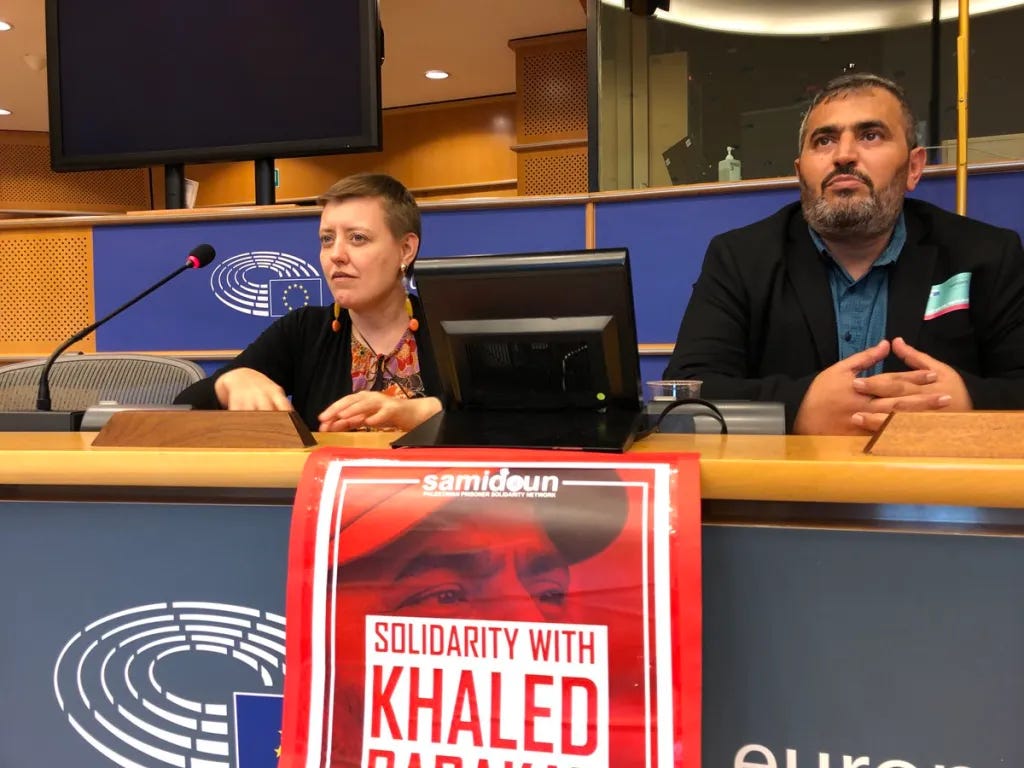
While Barakat appears to have somehow acquired Canadian citizenship after being deported from the United States in 2003, Kates was living and working in Canada by about 2011, after a rather comical career as an anti-Zionist activist in New Jersey. As with Barakat, just how Kates managed to secure Canadian residency is unknown.
Kates and Barakat lived in Germany for several years, apparently right up until Barakat was ordered out of Germany two years ago. When Kates was denied entry into the West Bank from Jordan in 2016, she was travelling on an American passport. As recently as March 2020 Iran’s Fars News Agency placed Kates back in the United States, with New Jersey Solidarity Activists for the Liberation of Palestine. In any case, she’s back in Vancouver now.
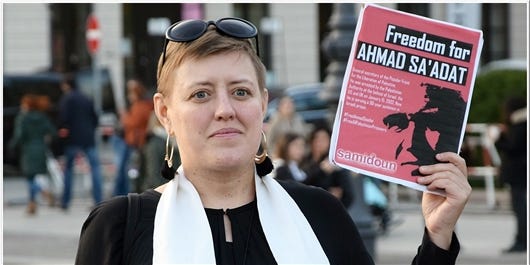
Kates first came to prominence in a 2003 New York Times article by the insufferable Chris Hedges, last seen complaining that Youtube had deleted the entire six-year archive of his “On Contact” show hosted by the Kremlin propaganda channel RT America. Hedges’ New York Times article recounts Kates’ adventures as a Communist Party member at age 13, and later as an anti-Zionist activist at Rutgers University who had no qualms about justifying suicide bombings or sloganeering about wiping Israel off the map.
A far more honest account of the Rutgers schism Kates set off with her PFLP-style rhetoric at the university appeared around the same time, in Salon magazine, headlined “The hacky sac intifada.” Long story short: “The most popular movement on college campuses is divided between moderate Arab students and radical lefty white kids who have adopted the Palestinian cause as their own.”
Fast forward to December 19, 2015. That’s when Samidoun launched a campaign on behalf of 52-year-old Omar Nayef Zayed, a “beloved community leader” in Bulgaria. Four days earlier, Israeli authorities had written to the Bulgarian authorities seeking Zayed’s extradition, and right away Samidoun was on the case. “We need to organize, get on the streets and make our voices heard for justice for Omar,” Kates declared, urging protests outside Bulgarian embassies and consulates, and a letter-writing campaign on Zayed’s behalf.
Unmentioned in Samidoun’s appeals: When Zayed pleaded guilty to the 1986 murder of Yeshiva student Eliyahu Amedi in East Jerusalem, he confessed in court, on his own behalf and on behalf of his accomplices: “We don’t regret, nor do I apologize for killing him. This was done in the context of the struggle for the liberation of Palestine.” At any rate, Zayed escaped from a hospital in 1990, eventually found his way to Bulgaria, and in 2015, after he learned of Israel’s intention to have him extradited, Zayed showed up as an uninvited guest of the Palestinian embassy in Sofia. He refused to leave.
A few weeks later, in the early hours of the morning of February 26, 2016, Zayed died in the garden of the embassy compound after jumping, or falling, or having been pushed, from the embassy roof, or a balcony. There will be a more about all that on the other side of the paywall below.
Here’s Barakat, grim-faced, at Zayed’s memorial service in Sofia in June, 2016. The woman he’s standing beside, eulogizing into a microphone, is the PFLP’s notorious Leila Khaled. She was an icon of the European radical-chic from the early 1970s - terrorism’s first female airline hijacker. Khaled was released from a British prison as part of an exchange for dozens of hostages taken in a mass PFLP hijacking of several aircraft in September, 1970. She currently resides in Jordan.
What follows is available to paid subscribers only.
Now, about the strange death of Omar Zayed in the Palestinian Authority’s compound in Sofia. At the time, Bulgarian prime minister Boyko Borissov just happened to be meeting in Jerusalem with Israeli prime minister Benjamin Netanyahu. It could be that Zayed reckoned the jig was up and the Bulgarians were determined to have him returned to prison in Israel, so he decided to commit suicide. But was Zayed murdered on the orders of the Palestinian Authority, or with the Palestinian Authority’s connivance? There’s certainly no love lost between the mainline Palestinian leadership and the PFLP. So was Israel really behind it? Were Bulgarian intelligence agents in on it?
Samidoun saw in Zayed’s death “the hands of the Zionist Mossad and a handful of paid collaborators who have stained their hands with the blood of strugglers, the honorable children of Palestine.”
Samidoun went even further: “This comes amid a time of political difficulties experienced by all Palestinian factions, undermining all attempts to develop programs to support the third Palestinian uprising towards the goals of our people, including the establishment of an independent Palestinian state.” That’s the PFLP’s line. Samidoun also wanted Palestinian Foreign Minister Riyad al-Malki fired and put on trial.
Writing in the Jerusalem Post at the time, Yossi Melman reckoned: “If Israel is involved, the Mossad, responsible for carrying out such special operations overseas, is the body that executed the mission.” Over the years, dozens of targeted assassinations have been attributed to Mossad, the Israeli Air Force, the Israeli Defence Forces and Shin Bet. Israel rarely takes credit for operations like these.
The Zayed case was never conclusively resolved.
Further evidence of Samidoun’s ties to banned-list terror groups involves the case of Samidoun’s Belgian organizer, Moustafa Awad, a man Samidoun describes as a dancer, a metal worker and an artist. Evidence elicited during Awad’s 2018 trial also implicates Barakat fairly directly.
Born in Lebanon, but a longtime Belgian citizen, Awad was arrested in July 2018 while attempting to enter the West Bank from Jordan. In August he was convicted on charges of belonging to the outlawed PFLP. According to Israel’s Ministry of Strategic Affairs and Public Diplomacy, it was Khaled Barakat arranged for Awad to begin “military training” with Hezbollah, the Iranian proxy terror group in Lebanon and Syria.
“It should be noted that Awad transferred funds from Lebanon and Syria to Khaled Barakat, in Belgium, on at least two occasions during 2016- 2017,” the Ministry report states, “additionally, he left his personal laptop and mobile phone with terrorist Leila Khaled in Jordan before attempting to enter Israel via the Allenby Bridge Border Crossing, where he was arrested.” There’s that Leila Khaled again, the celebrity PFLP airplane hijacker from the 1970s.
After being sentenced to serve a year in Israel's Gilboa Prison, on February 25, 2019 parole authorities approved Awad’s application for early release. Awad was all set to fly home to Belgium when Shin Bet re-arrested him and sent him back to jail; there had been some administrative foul-up. “There was no change in the Shin Bet's position that the early release of the prisoner - who was serving a prison sentence for serious security offences - could endanger state security and public safety," Shin Bet told Ha’aretz at the time.
Apart from his Samidoun work in Europe, Awad represented Samidoun in the the Shatila Refugee Camp in Lebanon in Samidoun’s campaign for the release of the PFLP’s Bilal Kaid, sentenced to 14 years in jail in 2002 on two counts of attempted murder, in two shooting incidents.
The Israeli parole board’s decision in favour of early release had concluded that Awad’s PFLP membership comprised “mainly studies about the organization,” and the military training Barakat reportedly arranged for him in Lebanon “did not include the use of weapons.”
A month later, Awad was released, and he flew home to Brussels.

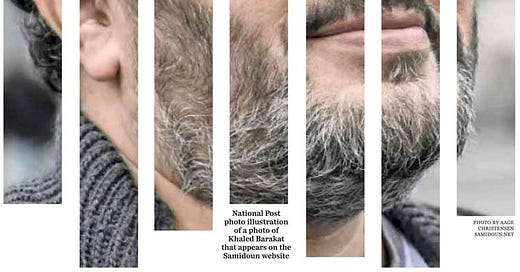


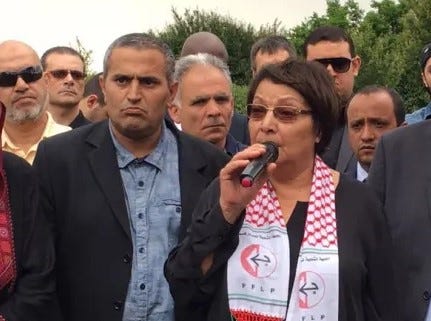
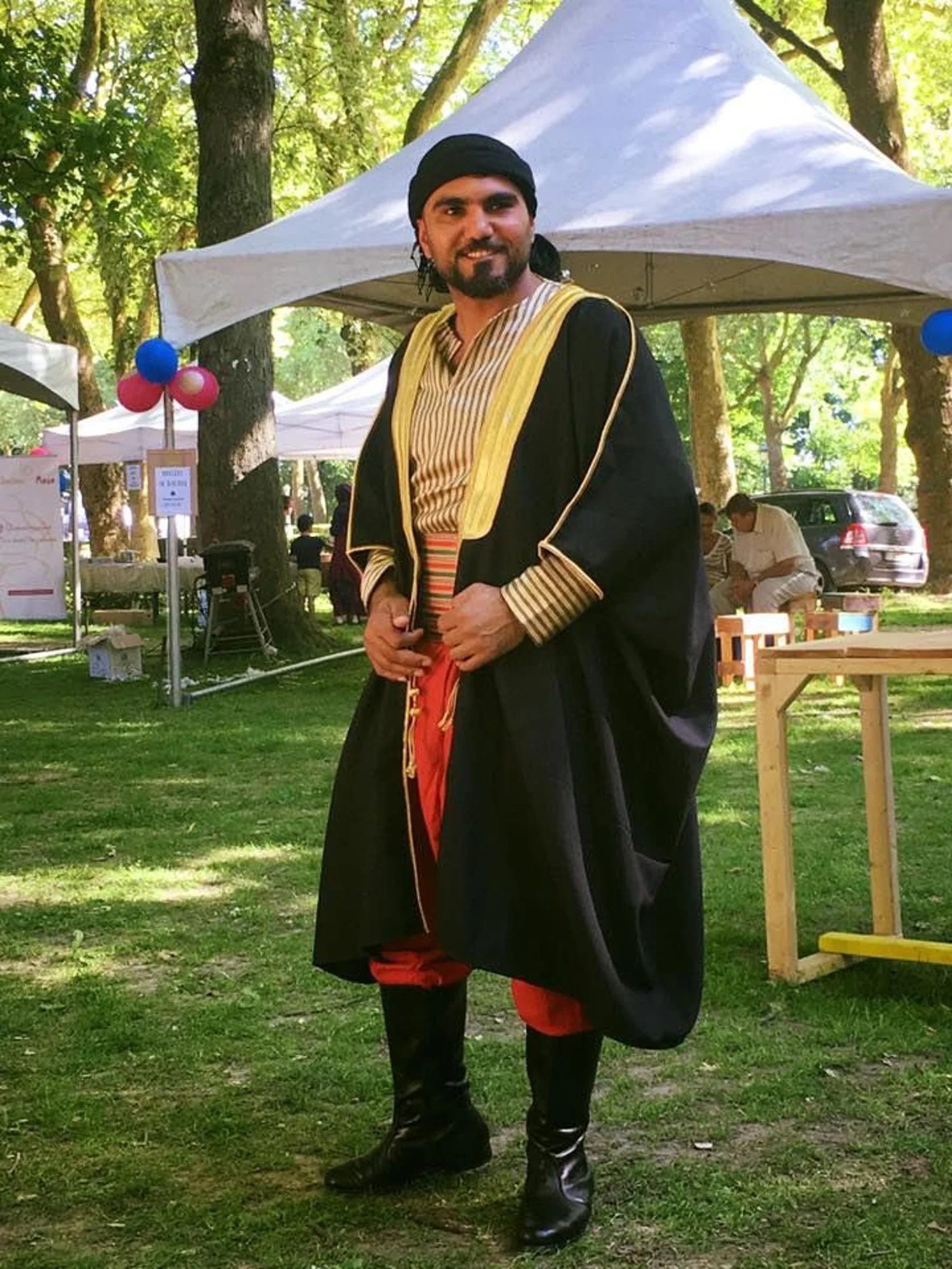
Great investigative journalism!
Commenting on an old thread. I see that Warren Kinsella has been digging into the funding of Team Hamas demonstrations and the Iranian connection.
http://warrenkinsella.com/2024/01/my-latest-governments-funding-hate-rallies/
http://warrenkinsella.com/2024/01/my-latest-the-iranian-connection/